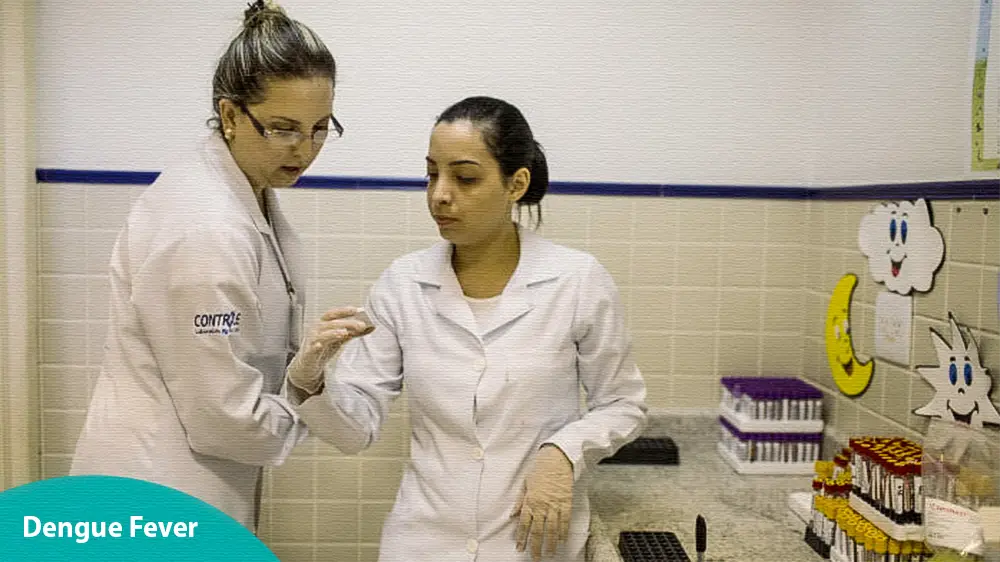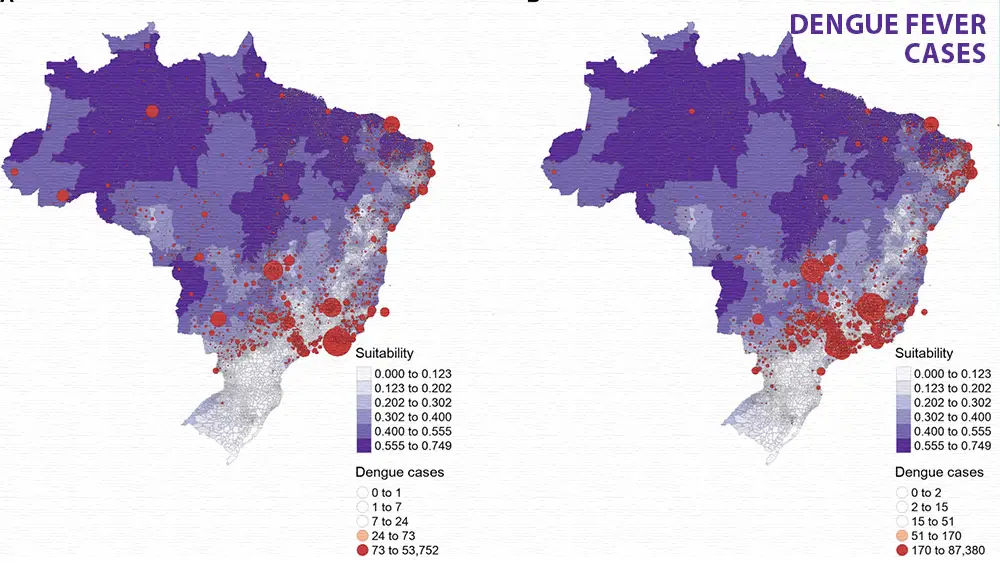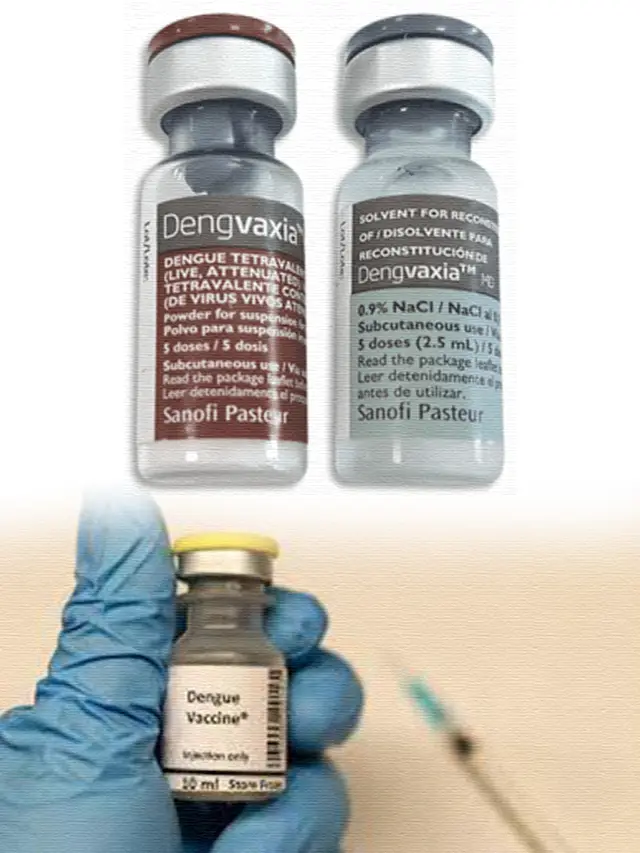
HEALTH NEWS
The Quest for a Dengue Fever Vaccine: Understanding Symptoms and Solutions
-
Rahul Priydarss
Dengue fever, a mosquito-borne viral infection, poses a significant public health challenge in many parts of the world, particularly tropical and subtropical regions. This article highlights the urgent need for a dengue fever vaccine, its symptoms, challenges in management, current vaccine development efforts, global initiatives, community education, and the role of governments and NGOs in combating this disease. Additionally, it also includes recent dengue fever news from Brazil.
Introduction:
Dengue fever, a mosquito-borne viral infection, poses a significant public health challenge in many parts of the world, particularly tropical and subtropical regions. This article highlights the urgent need for a dengue fever vaccine, its symptoms, challenges in management, current vaccine development efforts, global initiatives, community education, and the role of governments and NGOs in combating this disease. Additionally, it also includes recent dengue fever news from Brazil.

Table of Contents
Detaling of Dengue fever:
What is dengue fever?:
Dengue fever is a viral infection spread primarily by the Aedes mosquito species. It is caused by four different but closely related viruses, collectively known as dengue viruses (DENV).
Prevalence and impact:
Dengue fever is endemic in more than 100 countries, with approximately 390 million infections reported each year worldwide. Its prevalence is highest in tropical and subtropical areas, where the Aedes mosquito thrives.
Understanding the Symptoms of Dengue Fever:
Common Symptoms:
Dengue fever usually manifests with symptoms such as high fever, severe headache, joint and muscle pain, nausea, vomiting, and rash. These symptoms usually appear 4 to 10 days after being bitten by an infected mosquito, etc.
- Fever: One of the main symptoms of dengue fever is a sudden, high fever, often reaching 104°F (40°C) or higher.
- Severe headache: Dengue fever is often accompanied by severe headaches, which can be debilitating and persistent.
- Muscle and joint pain: Dengue fever causes severe pain in the muscles and joints, which is commonly called “breakbone fever” because of its intensity.
- Rash: Many patients with dengue fever develop a rash, which usually appears 2 to 5 days after the onset of the fever. The rash may be maculopapular or petechial.
- Fatigue: Fatigue and weakness are common symptoms of dengue fever, which often persist for several weeks even after the acute phase of the disease has ended.
- Nausea and vomiting: Dengue fever can cause nausea and vomiting, which in severe cases can lead to dehydration and electrolyte imbalance.
- Swollen lymph nodes: Some individuals suffering from dengue fever may experience swollen lymph nodes, especially in the neck and groin area.
- Abdominal pain: Abdominal pain, especially in the upper right quadrant, may often be accompanied by tenderness in patients with dengue fever.
- Bleeding symptoms: In severe cases, dengue fever may cause bleeding manifestations such as nose bleeding, bleeding gums, or easy bruising. Internal bleeding may also occur.
- Respiratory symptoms: Some patients may experience respiratory symptoms such as cough, sore throat, or difficulty breathing, although these are less common than other symptoms.
- Dengue hemorrhagic fever (DHF) and dengue shock syndrome (DSS): In severe cases of dengue fever, individuals may develop DHF or DSS, which is characterized by severe bleeding, plasma leakage, and organ dysfunction. These complications require immediate medical attention.
- Neurological symptoms: Rarely, dengue fever can cause neurological complications such as encephalitis or meningitis, with symptoms such as confusion, seizures, or coma.
- Eye symptoms: Some patients with dengue fever may experience symptoms such as redness, pain, or sensitivity to light in the eyes, which may indicate eye damage.
- Dehydration: Due to fever, vomiting, and decreased fluid intake, dengue fever patients are at risk for dehydration, which can worsen symptoms and lead to complications.
- Mood changes: Dengue fever can sometimes cause mood changes, including irritability, anxiety, or depression, which may be related to physical discomfort and longer illness duration.

Challenges in dengue fever management:
Lack of Treatment: There is no specific antiviral treatment for dengue fever. Management primarily involves supportive care to reduce symptoms, such as rest, adequate hydration, and pain-relieving medication.
Importance of Prevention: Given the lack of treatment, prevention is the most effective way to deal with dengue fever. This includes vector control measures, such as eliminating mosquito breeding sites and using insect repellents and mosquito nets.
Need for dengue fever vaccine:
- Dengue fever vaccines have given the huge burden of dengue fever in the country. Here are some key points about dengue fever vaccines in Brazil-
1- Vaccine research and development: Brazil has been a center of dengue fever vaccine research, with local pharmaceutical companies and research institutions actively engaged in vaccine development efforts. These initiatives aim to address the high incidence of dengue fever in the country and reduce its impact on public health.
2- Participation in Clinical Trials: Brazilian researchers and volunteers have participated in clinical trials for various dengue fever vaccine candidates. These trials evaluate the safety, efficacy, and immune response generated by the vaccines in different populations, including people living in endemic areas within Brazil.
3- Dengvaxia deployment: Brazil was one of the countries to introduce the world’s first licensed dengue fever vaccine, Dengvaxia (CYD-TDV), developed by Sanofi Pasteur, for public use. Dengvaxia was initially included in Brazil’s national vaccination program to vaccinate individuals aged 9 to 45 years living in high-risk areas.
With the country’s famous Carnival celebrations underway – fueling fears of further transmission – President Luiz Inácio Lula da Silva’s health minister, Nicia Trindade, officially launched the vaccination campaign in the capital, Brasília.
Even without the current pandemic, we would have started this vaccination drive because dengue is a long-standing health problem,” he told reporters.
The vaccine, known as Kyudenga, is manufactured by Japanese pharmaceutical firm Takeda. Supply shortages mean Brazil will initially offer it only to children ages 10 to 11. Officials hope to reach 3.2 million of Brazil’s 203 million people by the end of the year.
The government says it is studying options to produce the vaccine domestically. Dengue, which can cause hemorrhagic fever, infects an estimated 100 million to 400 million people annually, according to the World Health Organization, although most cases are mild or asymptomatic.
- Advertisement -
Progress in vaccine research:
Types of dengue vaccine:
Researchers are exploring various vaccine approaches, including live attenuated vaccines, inactivated vaccines, recombinant vaccines, and tetravalent vaccines that target all four dengue virus serotypes.
Clinical Trials and Progress: Several vaccine candidates have advanced into clinical trials, demonstrating varying degrees of efficacy and safety. Tetravalent vaccines, designed to protect against all four serotypes, have shown promising results in recent trials.
Brazil Dengue Fever News:
Recent Outbreak: In recent months, Brazil has seen an increase in cases of dengue fever, especially in densely populated urban areas. Thousands of cases have been reported in the country, putting a strain on healthcare resources.
Government response: The Brazilian government has launched a massive public health campaign to raise awareness about dengue fever prevention and encourage vaccination. Additionally, efforts are underway to increase mosquito control measures and improve access to health services in affected areas.
Frequently Asked Questions (FAQs):
A1: Dengue fever is mainly spread by the bite of infected Aedes Mosquitoes, especially Aedes aegypti and Aedes albopictus.
A2: No, dengue fever is not directly contagious from one person to another. Transmission requires the bite of an infected mosquito.
A3: Dengue fever is primarily spread by the bite of infected Aedes mosquitoes, particularly Aedes aegypti and Aedes albopictus. These mosquitoes are commonly found in tropical and subtropical regions.
A4: Yes, there is a vaccine available for dengue fever called Dengvaxia. It is designed to protect against all four serotypes of dengue virus. However, its availability and recommendations for use may vary by country and region.

-Please remember, to always consult with healthcare professionals or Doctors for personalized advice related to medical conditions.
Conclusion:
In conclusion, the discovery of a dengue fever vaccine represents an important milestone in global health efforts to combat mosquito-borne diseases. Although challenges remain, ongoing research, collaborative partnerships, and concerted efforts toward vaccination and prevention hold promise for a future free from the threat of dengue fever.




